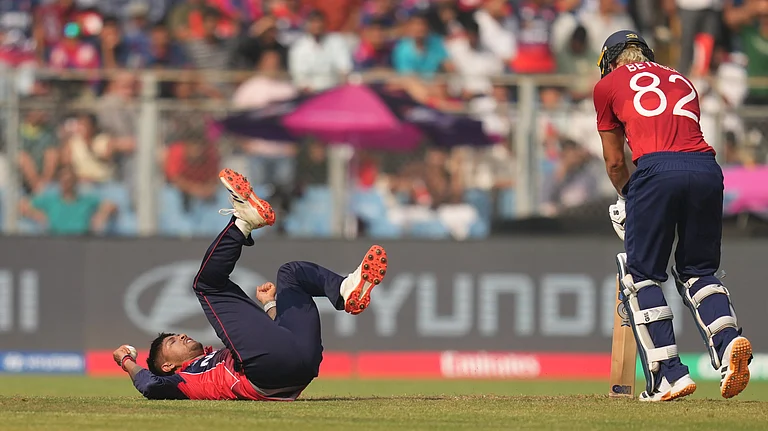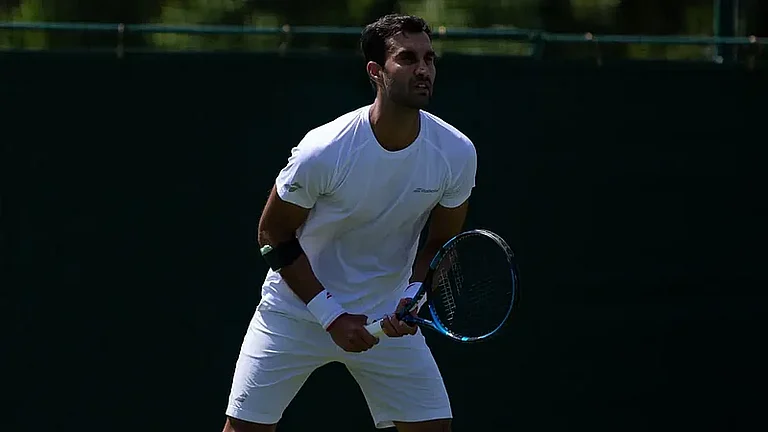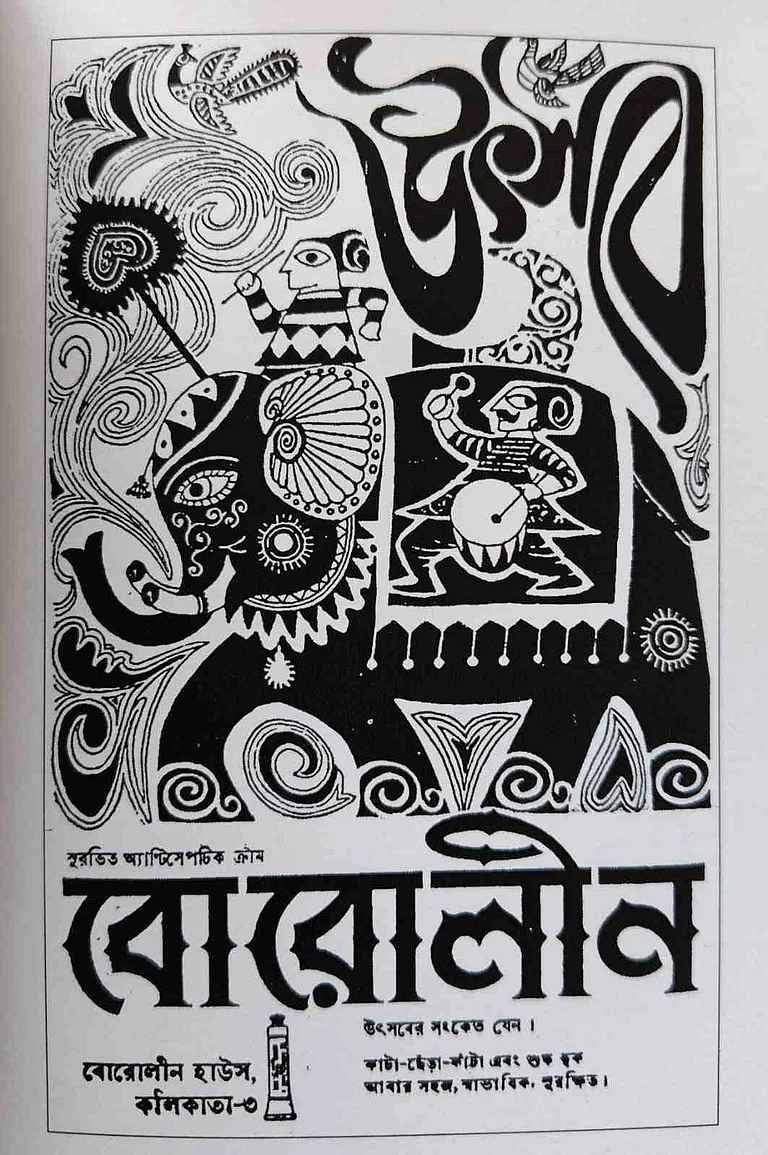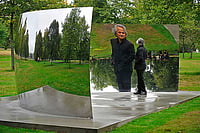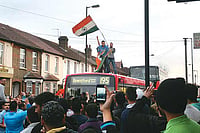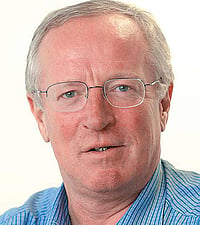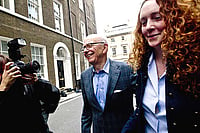This is your last warning: temperance or regulation. This seems to be the message to the British media after 14 months, hundreds of witnesses called—including four prime ministers, press magnates, hounded celebrities and a few real people who had become victims (representing the thousands more)—and a legal inquiry which sought to persuade Fleet Street to take what recovering alcoholics and Scientologists call “a searching, fearless moral inventory” of itself.
The Leveson inquiry, presided over by the titular Lord Justice, was the culmination of a probe on the several strands of what was afflicting the UK’s press: allegations of phone hacking and bribery; the unhealthily close relationship between elected officials and newspapers; an even more toxic symbiosis between press and police; and a looming alternative to self-regulation by the toothless Press Complaints Commission etc.
It comes at a time of soul-searching across the seas in the Indian media too amid reported extortion bids by two editors of Zee News (see box). The charges of extortion, criminal intimidation and defamation filed by business house Jindal Steel and Power Ltd are symptomatic of a larger malaise that afflicts Indian media. A similar call for greater regulation by an independent body, which has the ringing endorsement of the government and the Press Council of India, has conversely raised dark visions of media control.
The Leveson recommendations too have predictably divided the island nation—some claim that they are too draconian, others that they are too weak. Among the main suggestions are:
- A new regulatory body, completely independent of both media and politics, underpinned by statute
- That freedom of the press be explicitly enshrined in an act of parliament
- A quicker process for libel resolution, by a specified unit
There were many others in the detailed list of findings, but the golden question now is, where to go from here? Prime minister David Cameron quickly played down any talk of legal statutes but made the case that the fourth estate must put its house in order. Or else.
Culture secretary Maria Miller told editors and publishers that if they do not come up with a system that takes in the Leveson recommendations, she will react by imposing full statutory controls. She told the House of Commons: “We will not accept a puppet show with the same people pulling the same strings.” Introspection is under way, after Cameron’s cloaked ultimatum. The editors of Britain’s major national titles met this week at the neutral territory of 10 Downing Street, pledging to come up with a new regulatory proposal as soon as possible. Daily Telegraph editor Tony Gallagher compared it to the meeting of the five families in The Godfather.
But will they follow through or is it all an act? “In the past, British national newspapers have been very good at negotiating away threats to their autonomy,” George Brock, head of journalism at City University and a former managing editor of The Times, tells Outlook. “But even the newspaper editors and publishers who think the fuss over phone-hacking was overblown and the Leveson inquiry an overreaction have accepted that tougher regulation is going to happen.” Printed papers are likely to be more heavily regulated, says Brock, but online is another issue. And a ‘Leveson Law’ isn’t ever likely to get on the statute book, he concedes.
Opinion differs on a statutory threat effectively dampening a free press. Logic calls that the media be up in arms at any scent of political interference. The notorious ex-editor of the Sun, Kelvin Mackenzie (he of the tabloid stories in the 1980s like the one which had Liverpool football club fans pickpocketing and urinating on the dead after the Hillsborough stadium disaster of 1989—stories shown by an inquiry to be utterly false), says politicians are no more trustworthy. In the man’s own words, “Listening to all those expense-swindling MPs demanding journalists be brought to heel, it occurred to me that having this lot regulate the press would be like the Great Train robbers writing the rail timetable.”
A slightly more nuanced opinion came from London mayor and Daily Telegraph columnist Boris Johnson, someone who can sympathise with both sides: “The tragedy is that the cure may now be worse than the disease,” he wrote.
In contrast, Brian Cathcart, professor of journalism at Kingston University and a founder of the Hacked Off campaign, a group fighting for greater media regulation, believes Leveson has simply allowed Cameron to be soft on his allies in the Murdoch press. “He (Cameron) wants to give the press another last chance for unaudited, unchecked self-regulation—so placing himself in that long miserable line of ministers and politicians who have ducked the challenge of press misconduct over 60 years.”
There is also the problem of public apathy at an inquiry into what at times seems a legal maze. Did the people believe that since original offender News of the World has shut down, everything was ok again? Brock says: “Once the celebrities had given evidence to Leveson, public attention faded quickly. The same happened when the report came out: no sooner did the world’s media discover that it was a complicated prescription which took quite a few sentences to explain, they lost interest quite fast.”
The next few weeks will be crucial. Fleet Street has to bridge its ferocious divisions and come up with a better system to stem its worst indulgences. Otherwise the state steps in. But is that by definition a bar to press freedom?
“No, plainly not,” says Brock. “Scandinavian countries with extremely robust newspapers and websites have regulation systems with state involvement. It’s absurd to suggest that three centuries of carefully protected freedom of the press in Britain would crumble if Leveson’s plan for a statute was enacted.” But he admits that a system that didn’t rely on statute would be ideal. An ideal may be a luxury the British press can no longer afford; with the spectre of the state looming large, the “street of shame” may finally have to give itself a very public flogging.







